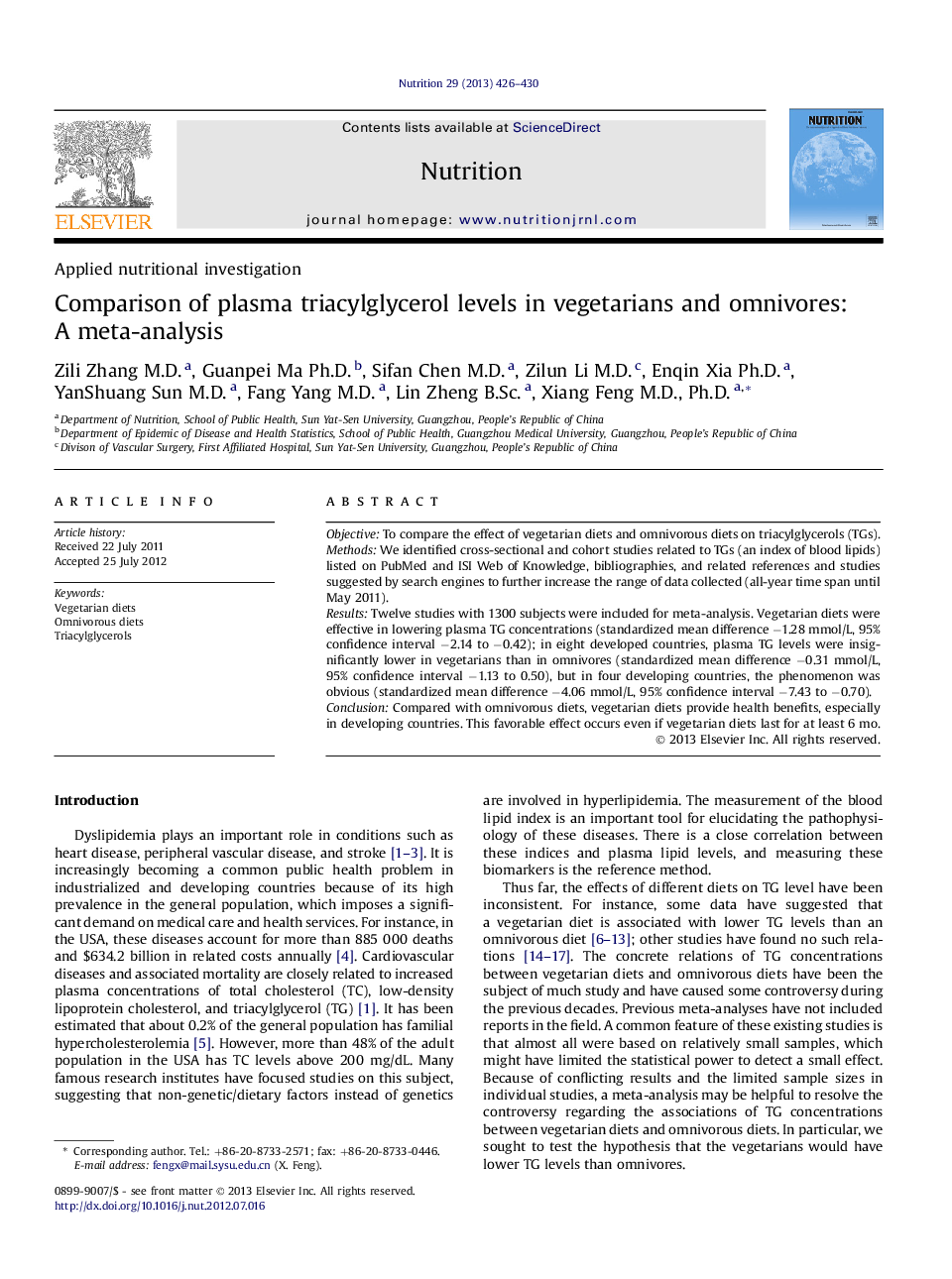| Article ID | Journal | Published Year | Pages | File Type |
|---|---|---|---|---|
| 6089909 | Nutrition | 2013 | 5 Pages |
ObjectiveTo compare the effect of vegetarian diets and omnivorous diets on triacylglycerols (TGs).MethodsWe identified cross-sectional and cohort studies related to TGs (an index of blood lipids) listed on PubMed and ISI Web of Knowledge, bibliographies, and related references and studies suggested by search engines to further increase the range of data collected (all-year time span until May 2011).ResultsTwelve studies with 1300 subjects were included for meta-analysis. Vegetarian diets were effective in lowering plasma TG concentrations (standardized mean difference â1.28 mmol/L, 95% confidence interval â2.14 to â0.42); in eight developed countries, plasma TG levels were insignificantly lower in vegetarians than in omnivores (standardized mean difference â0.31 mmol/L, 95% confidence interval â1.13 to 0.50), but in four developing countries, the phenomenon was obvious (standardized mean difference â4.06 mmol/L, 95% confidence interval â7.43 to â0.70).ConclusionCompared with omnivorous diets, vegetarian diets provide health benefits, especially in developing countries. This favorable effect occurs even if vegetarian diets last for at least 6 mo.
